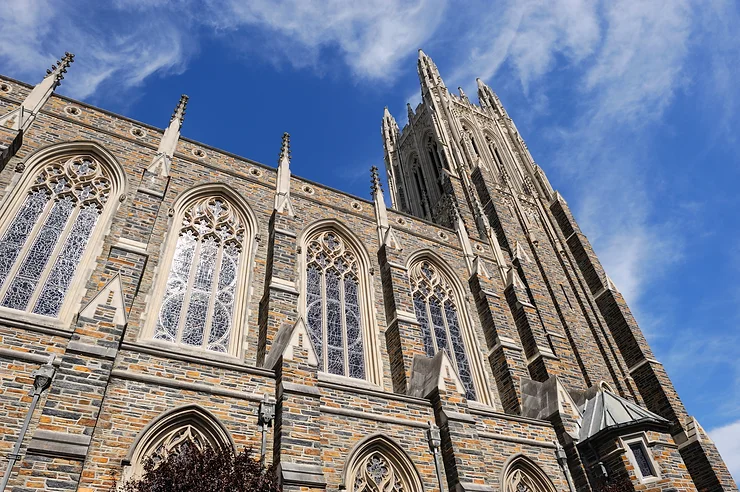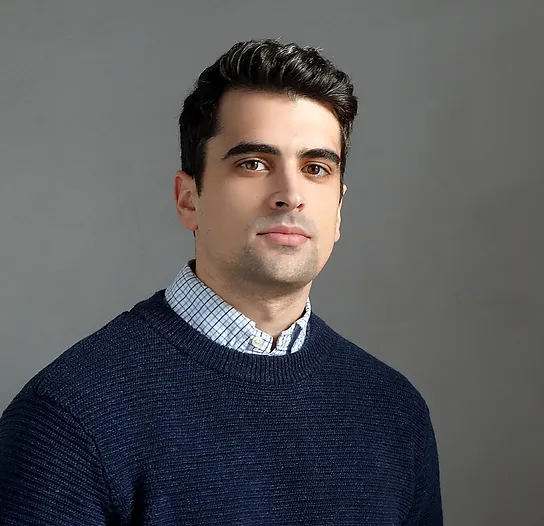Pierre is a leading college and graduate admissions consultant with extensive experience in education and entrepreneurship. His advice has been featured on Forbes.com, U.S. News, CNN Business, the Washington Post, ABC News, Business Insider, and more.

Welcome to the Duke supplement for the 2019-2020 application cycle! Duke asks three questions. One is required, one is technically optional (but actually isn’t if you’re serious about wanting to get into Duke), and the third is truly optional.
The required essay is essentially a “Why Duke?” essay. There’s one version for students applying to the College of Arts and Sciences (called Trinity College), and there’s another version for students applying to Duke’s Pratt School of Engineering.
The not-actually-optional question is diversity/community essay. You really need to respond to this one.
The actually-optional question is about gender identity and sexual orientation. This is actually optional. You do not need to respond to this question if you do not want to, and you absolutely must not respond to it if you are not part of the LGBTQIA+ community.
OK, so here we go:
If you are applying to the Pratt School of Engineering as either a first-year or transfer applicant, please discuss why you want to study engineering and why you would like to study at Duke. (250 words maximum)
If you are applying to the Trinity College of Arts & Sciences as either a first-year or transfer applicant, please discuss why you consider Duke a good match for you. Is there something particular about Duke that attracts you? (250 words maximum)
The two most important pieces of advice I can give you are the following:
First off, be as specific as possible about Duke. For “Why This College?” questions, you can’t recycle essays you’ve written for other schools. If your justification for wanting to attend Duke is the same as your justification for wanting to attend Vanderbilt, then your justification isn’t specific enough. You need to show Duke that you’ve done your research, and that you’re applying for legitimate, personal reasons. So whether you’re applying to Pratt, or Trinity College, make sure you’re being very specific about the academic track you will pursue. (For Trinity College applicants, you should declare a major, even if you’re actually undecided.) You need to mention some upper-level classes you’d be excited to take, professors whose work alines with your own interests, and some student clubs and organizations you’d like to join.
Second, you want your primary focus here to be on your past rather than your future. I know that sounds paradoxical, since questions like these inevitably make students think about a possible future at a given college. But your desire to attend Duke (in the future) needs to be grounded in your past experiences and achievements. Compare the following two sentences.
“I want to join Duke’s Adopt A Grandparent group because I care deeply about the elderly.”
“After my grandmother went to live at Shady Lawns hospice care facility my freshman year, I decided to found a student club to organize weekly activities at Shady Lawns and other local centers and nursing homes. I hope to continue this work at Duke by joining Adopt a Grandparent.”
See the difference? The first sentence is vague: the writer is making a claim (“I care deeply about the elderly”) without backing it up. Anyone can make statements like these. The second sentence helps us understand that this extracurricular interest is authentic and that the writer has already demonstrated his or her commitment to the issue at hand. Details of the project are on the activities list (how many people are involved in the club, how many people and facilities have been served, etc.), so there’s no need to waste words here. This short “origin story” of the club tells us something new, and justifies the applicant’s choice of extracurricular activities at Duke.
Duke University seeks a talented, engaged student body that embodies the wide range of human experience; we believe that the diversity of our students makes our community stronger. If you’d like to share a perspective you bring or experiences you’ve had to help us understand you better—perhaps related to a community you belong to or your family or cultural background—we encourage you to do so. Real people are reading your application, and we want to do our best to understand and appreciate the real people applying to Duke. (250 words maximum)
The point of all these essays is for admissions officers (real people) to get to know you (a real person). So while this question is technically optional, it really isn’t. Regardless of who you are, I promise that you have a unique human experience. If you will be the first member of your family to attend college (only 9% of accepted students to the class of 2022 were first-generation college students) or belong to another underrepresented group at Duke University, this is a great time for you to write about what your human experience is like, and how you hope to contribute your perspectives once at Duke. Take a look at demographics at Duke. Notice, for example, that 65% of the class of 2022 were from public schools. So, not that you would, but don’t write about being from public school. You’re not unusual in this regard. If you were homeschooled, on the other hand, that would be truly unusual for Duke (4% of the class of 2022).
Even if you are a middle-class white kid from outside of, say Houston, this is your chance to think long and hard about what makes your experience unique. It’s a chance to show self-awareness and introspection. Tell a story about what’s unique about your community, family, or school.
Duke’s commitment to diversity and inclusion includes gender identity and sexual orientation. If you would like to share with us more about either, and have not done so elsewhere in the application, we invite you to do so here.
To repeat what I said at the top: if you are not a member of the LGBTQIA+ community, sit this one out. It’s not your turn to talk.
And, again, if you are a member of the LGBTQIA+ community, this essay is truly optional. You are under no obligation to share anything you don’t want to. But it’s a chance for you to speak to your experiences if you’d like to take it.
As always, our college admissions consultants are here to help. Don’t hesitate to reach out.




